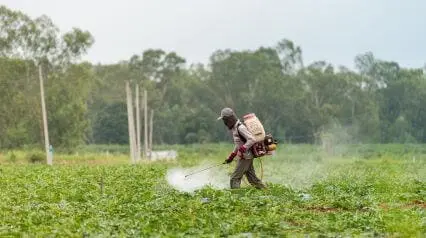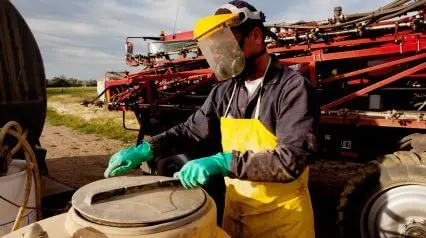What are Farm Hazards?
Farm hazards are activities, items, practices, and equipment that can cause harm to farm workers. These hazards should be identified before any farm work to be addressed immediately and ensure the safety of workers at all times.
What are the 10 Most Common Farm Hazards?
According to the US Occupational Safety and Health Administration (OSHA), some of the most common farm hazards are the following:
- Animal bites and excretions that can cause sicknesses and injuries
- Respiratory problems from grain bins, chemicals, and weather changes
- Physical harm from farm equipment breakages and misuse
- Heat-related illnesses from harsh hot weather
- Falls from high places and trips over stray equipment and plants
- Musculoskeletal injuries from repetitive strenuous movement
- Extensive unprotected exposure to harsh chemicals such as pesticides
- General health problems from overwork
- Vehicular accidents that can lead to injuries
- Hearing loss from loud equipment
How to Avoid and Address Farm Hazards
It is important to address farm hazards as soon as they are spotted. The farming industry is one of the most hazardous industries in the world as it involves many strenuous activities, heavy equipment, and hours under harsh conditions. In the US, there are at least 23.4 deaths per 100,000 farm workers yearly as of 2018, with at least 2 million youth exposed to farm hazards yearly.
These statistics are reflected around the world with varying degrees, such as in Australia where, in 2021, agriculture was deemed as the highest-risk occupation in the country with eight times the fatality rate compared to other industries. An average of 79 farmers die yearly, with a majority of them getting life-threatening injuries from vehicle and machine use.
Different farms will have different hazards to consider and ways to address them. Some ways to keep your farm safe include:
- Follow the hierarchy of controls in identifying, mitigating, and addressing risks
- Perform regular risk assessments and safety audits of your farm and your items
- Keep children away from hazardous items on the field
- Keep necessary agricultural equipment and machinery in good working order
- Promote good hygiene practices at all times
- Regularly keep pathways and fields clear of tripping and flammable hazards
- Train employees on the proper safety procedures and how to deal with farm hazards
- Stay updated on weather changes and work around them accordingly
- Create and follow safety protocols for different situations
- Record injuries, equipment issues, and risks in one place to better analyze them for the future




